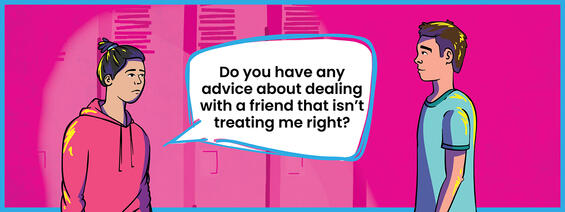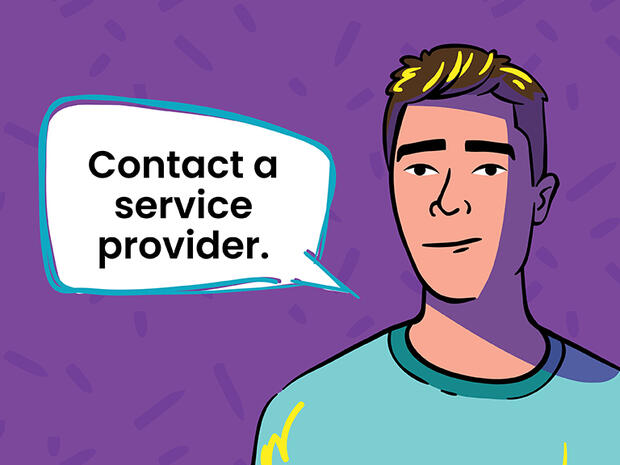Unhealthy characteristics
- Control: one person makes most of or all of the decisions and/or tries to isolate the other person from their friends and family
- Dependence: one person says they can’t live without the other and / or threatens to do something drastic if the relationship ends
- Digital monitoring or “clocking”: one person uses social media to keep tabs on the other person and may demand quick responses to messages or texts
- Dishonesty: one person lies to, steals from, or keeps information from the other
- Disrespect: one person makes fun of the other or talks about them behind their back
- Hostility: one person picks fights with the other, which may lead to changes in behavior to avoid upsetting them
- Harassment: one person uses unwanted, unwelcome, and uninvited behavior that makes the other feel unsafe
- Intimidation: one person tries to make the other fearful or timid. This may include threatening violence or a break-up
- Physical violence: one person uses force such as throwing things, hitting, slapping, grabbing, or shoving to get their way
- Sexual violence: one person pressures or forces the other into sexual activity against their will or without consent
(Adapted from Youth.gov)

Addressing your unhealthy relationship
Unhealthy relationships are built on power and control. In the beginning, unhealthy behaviors might not seem like a big deal. However, insults, jealous accusations, yelling, put-downs, shoving, pushing or other abusive behaviors, are unhealthy and disrespectful.
You deserve to be respected.
If you think your relationship is an unhealthy, follow these tips:
Focus on your safety
Remember these important safety reminders:
- Trust your gut. If you feel like something is not right, listen to that inner voice.
- Relationships shouldn’t drain you. If yours is, think about ending it. You deserve to feel good in your relationships. Learn more about healthy breakups.
- You can’t force someone to change, especially if the other person doesn’t think they’ve done anything wrong.
- Keep an eye on your stress levels and try to get enough sleep. Support systems can help you feel less isolated, so be sure to spend time with friends and family.
Talk to someone you trust
You don’t have to handle an unhealthy relationship alone. If you are ready to talk about your situation, find someone you trust. This might be a family member, friend, teacher, counselor, coach, coworker, or someone else. Start by asking them to listen and move at the pace you’re comfortable with.
If you don’t know how to begin the conversation, try:
- “I haven’t been feeling good about my relationship. Can I talk to you about it?”
- “Do you have any advice about dealing with someone who isn’t treating me right?”
- “I don’t know that I’m ready to leave yet, but can I share some things with you about issues happening in my relationship?”
Contact a service provider
If you ever feel like you’re in physical danger, please call 911 if you are safe to do so.
Search for local service providers who can help you understand your options and find resources and support.
You can also call the 24/7 National Teen Dating Abuse Helpline at (866) 331-9474, text: loveis to 22522, or chat online.
Set up a safety plan
Although you can’t change your partner or friend’s behavior, you can make changes in your own life to stay safe.
Creating a safety plan—a personalized, practical plan to help keep you safe if you are in an abusive relationship—is something you should put together with an advocate who can guide and support you throughout the process.
A personal safety plan will address your physical safety and emotional safety and may include information about how to leave your relationship and find support legally or with law enforcement. For more information visit: Teen Safety Plan | loveisrespect.org.

How to end a relationship safely & respectfully
Ready to break up with a friend or romantic partner? Learn how to navigate breakups in healthy ways.
How to help a friend in an unhealthy relationship
If you suspect that someone you care about may be in an unhealthy or abusive relationship of any kind, learn how you can support them.
Take the healthy relationships quiz
Wondering if your relationship is healthy? Take this quiz.
Find more tools and resources
Find local teen dating abuse help in Massachusetts, national hotlines and tools, and RESPECTfully MA social media.




